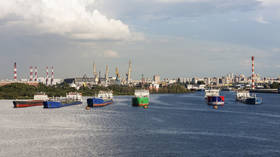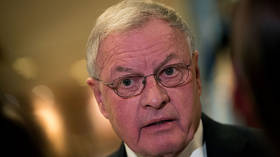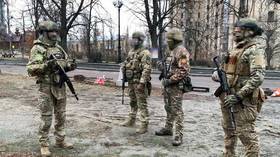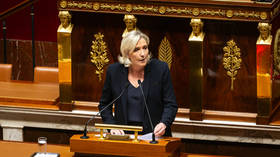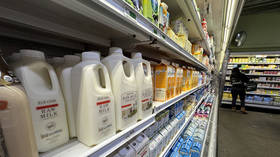Gulf nation says oil producers wary of price cap – Bloomberg
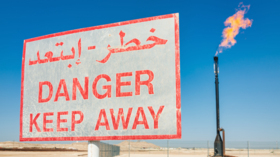
Major oil producers are concerned about the price cap imposed by the Group of Seven nations on Russian crude exports, Oman’s energy minister, Salim Al-Aufi, said in an interview with Bloomberg.
The limit on Russian seaborne oil, set at $60 per barrel, was introduced by the EU, the G7 countries, and Australia on December 5. It bans Western companies from providing insurance and other services to vessels loaded with Russian oil, unless the cargo is bought at or below the price indicated.
“I don’t think anyone likes it,” Al-Aufi said told the agency earlier this week. “We don’t know how far it will go. Today, it’s Russia. But tomorrow that can change and it could be a global price cap. That would be extremely serious.”
The minister also warned that the measure could lead to less investment in oil production globally.
Speaking days after the Organization of the Petroleum Exporting Countries and its allies (OPEC+) met to discuss policy, Al-Aufi said the group agreed to hold output steady, stressing that the market isn’t “ready to receive additional volumes.”
The minister also said that OPEC+ felt the latest data didn’t justify another reduction in supply. In October, the alliance agreed a daily reduction of two 2 million barrels.
“Any additional cut was likely to send a negative message to the market,” Al-Aufi said. “For now, we’re holding to October’s decision. But that doesn’t mean we can’t respond if we think the market is oversupplied significantly, or undersupplied. We can convene at any time.”
Global prices for crude surged over $127 per barrel shortly after Washington and its allies imposed sanctions on Russia, one of the world’s biggest oil producers and exporters, over its military operation in Ukraine. Since then, crude prices have eased, dropping to less than $80 per barrel as demand across the globe has been dragged down by slowing economic growth in the US and Europe, along with prolonged Covid-related restrictions in China.
For more stories on economy & finance visit RT's business section
